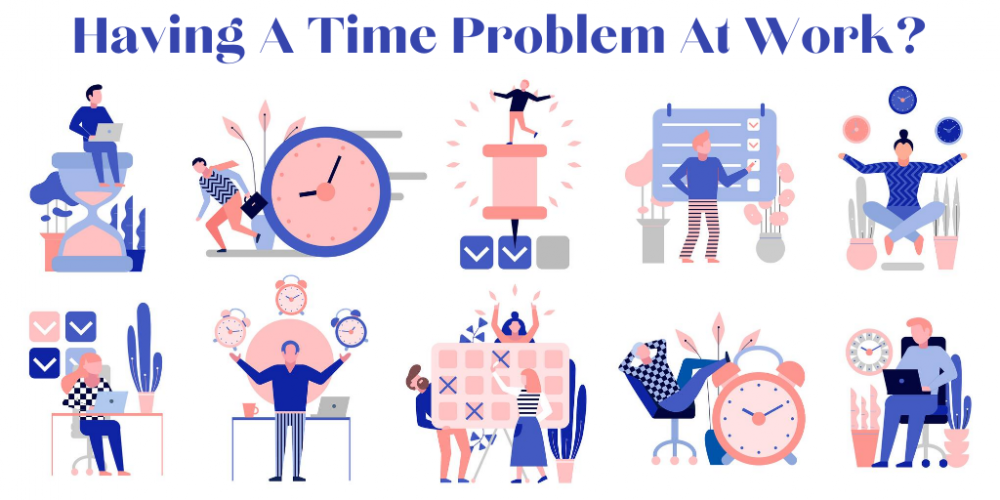The fact is, trying to identify your top priorities for your job role and your workload can lead to a sense of both frustration and being overwhelmed by the amount of work you have to get through each day. This is especially true if you think all your responsibilities and tasks require the very same levels of commitment and implementation.
Consider this…Don’t think for one moment that you have to do everything and just assuming that more is better and that you have to complete all your tasks right now.
A good example of this is when you have planned out and just started working on a high-priority task when someone interrupts you and diverts your attention on your important work by requesting that you need to refocus on their work issue that has just come up.
Sometimes this kind of situation is unavoidable, especially if it’s an urgent customer request or a health and safeguarding issue. However, there will always be some people who are ‘time hoovers’ and take up your valuable time because they want to pass what they think is their big problem onto you to deal to do it for them.
Which means you have to learn how to prioritise your time effectively (do the rights thing) and efficiently (in the right way). This is processing priorities against time which and you really do need to work out how to find out the best techniques that work for you in order to prioritise and maintain stable productivity levels.
What all this really means for you is that you cannot control time. It’s an external measure that can’t be stopped or slowed down. What you have to do is manage your reactions and your work environment to time.
One way to do this is by constantly asking yourself: How can I positively and politely stop other people and events interrupting my priority work tasks and responsibilities in order to achieve the important work goals I gave to accomplish?
And then taking action to pleasantly but firmly deal with the perpetrator and then continuing with your work.
Another way to prevent you failing to prioritise is to make judgments about your tasks and responsibilities. Are they really your workload, or are can they be shared with someone, or can they be delegated to someone else?
You see, a responsibility is work that you or someone else is held responsible for the outcome. Does this have to be you? If so, give it a score for how quickly the objective has to be achieved and compare it to scoring for your other responsibilities and decide which ones you should act on first, second, etc. And if it’s not your responsibility then, negotiate with someone to share the outcome and by when, or delegate it.
On the other hand, tasks are routine day-to-take activities that fall into your work remit such as opening your email or deciding to come up with a new administrative process idea. When you do these are entirely up to you and you’re not held accountable for their exact priority of timing. They just have to be completed at some point.
So what you can then do is keep and ongoing list of your responsibilities and tasks and at the end of each day or first thing in the morning, create a timetable for setting these out as:
- Urgent priorities which have to be achieved on that day at a certain time
- Very important priorities which have to be achieved, but are scheduled in around the urgent
- Important priorities to be achieved but can be rolled over to the next day if necessary (and therefore become an urgent priority the next day)
By dealing with your responsibilities and tasks, and ‘gate crashers’ on your time, in this way, you will have more control of your productivity (getting results) as opposed to trying to control time (which is impossible).
And what will happen if you don’t control your productivity? Well, you will just continue to fail to prioritise and get frustrated, feel anxious and go through a period of worry, pressure and stress – outside of your work as well as inside!





Leave a Reply